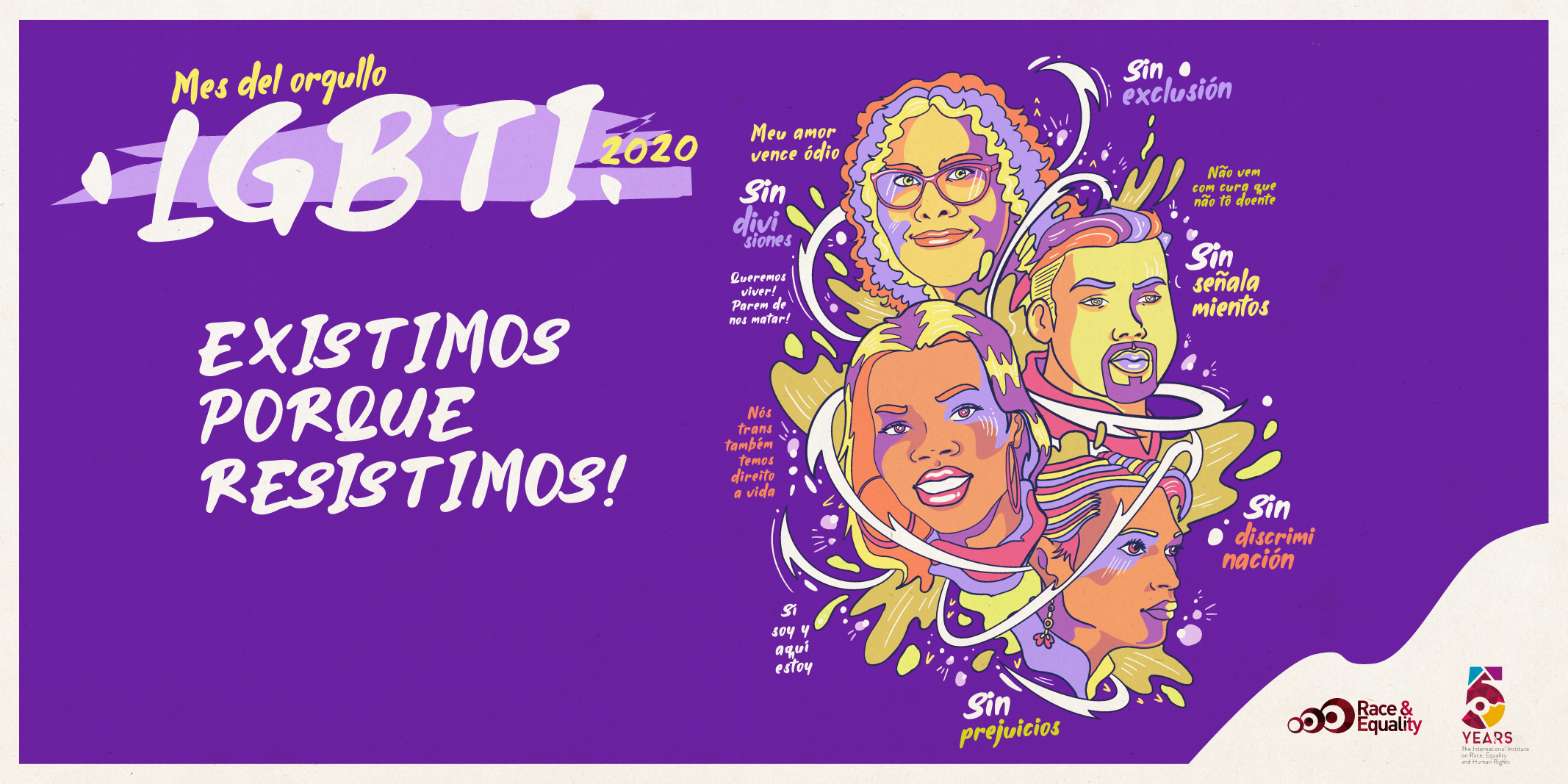LGBTI Pride Month 2020
Each year in the month of June, we come together to celebrate and recognize the lives of LGBTI people and the impact they have had around the world. This month, […]

Each year in the month of June, we come together to celebrate and recognize the lives of LGBTI people and the impact they have had around the world. This month, known as “Pride,” was chosen to commemorate the uprising at the Stonewall Inn, a gay club in New York City. These six days of protests were a turning point for the LGBTI movement not only in the United States, but the entire world, leading the LGBTI community to demand equal rights for people of all sexual orientations and gender identities.
This year, at Race and Equality, we celebrate the fifth year of our LGBTI Program, working with our partners in Brazil, Colombia, the Dominican Republic, Nicaragua, and Peru to revindicate their rights and give visibility to the struggle for LGBTI rights in the region. Since the revolt at the Stonewall Inn, the LGBTI movement has seen many victories around the world. Recently, Brazil’s Supreme Court overturned a law that prevented gay and bisexual men from donating blood and Costa Rica became the first country in Central America to legalize same-sex marriage. Although progress has been made, we continue to live in a heteronormative world which continues to deny the existence of the LGBTI population.
This Pride Month, we would like to remind everyone that this is not only a time of celebration, but now, more than ever, it is a time to demand equal rights for LGBTI people as well as give visibility to their struggles and victories. Amid the ongoing protests in the United States and police brutality against the Black community, we would also like to remind everyone that the Stonewall riots began, in part, by gender diverse black people, and in order to prosper, the LGBTI movement must be intersectional.
With this in mind, Race and Equality would like to amplify the voices of different activists around Latin America that continue to suffer various human rights violations which continue to be institutionally legitimized in many States due to the lack of public policies that sanction them.

